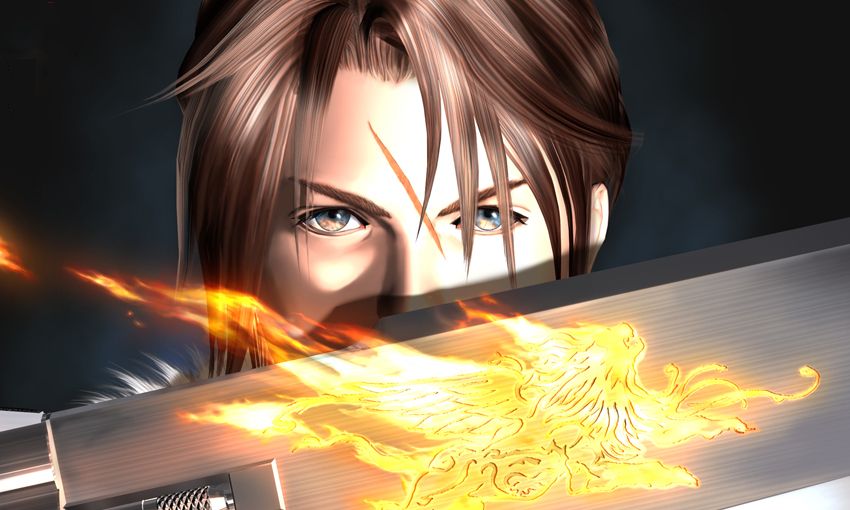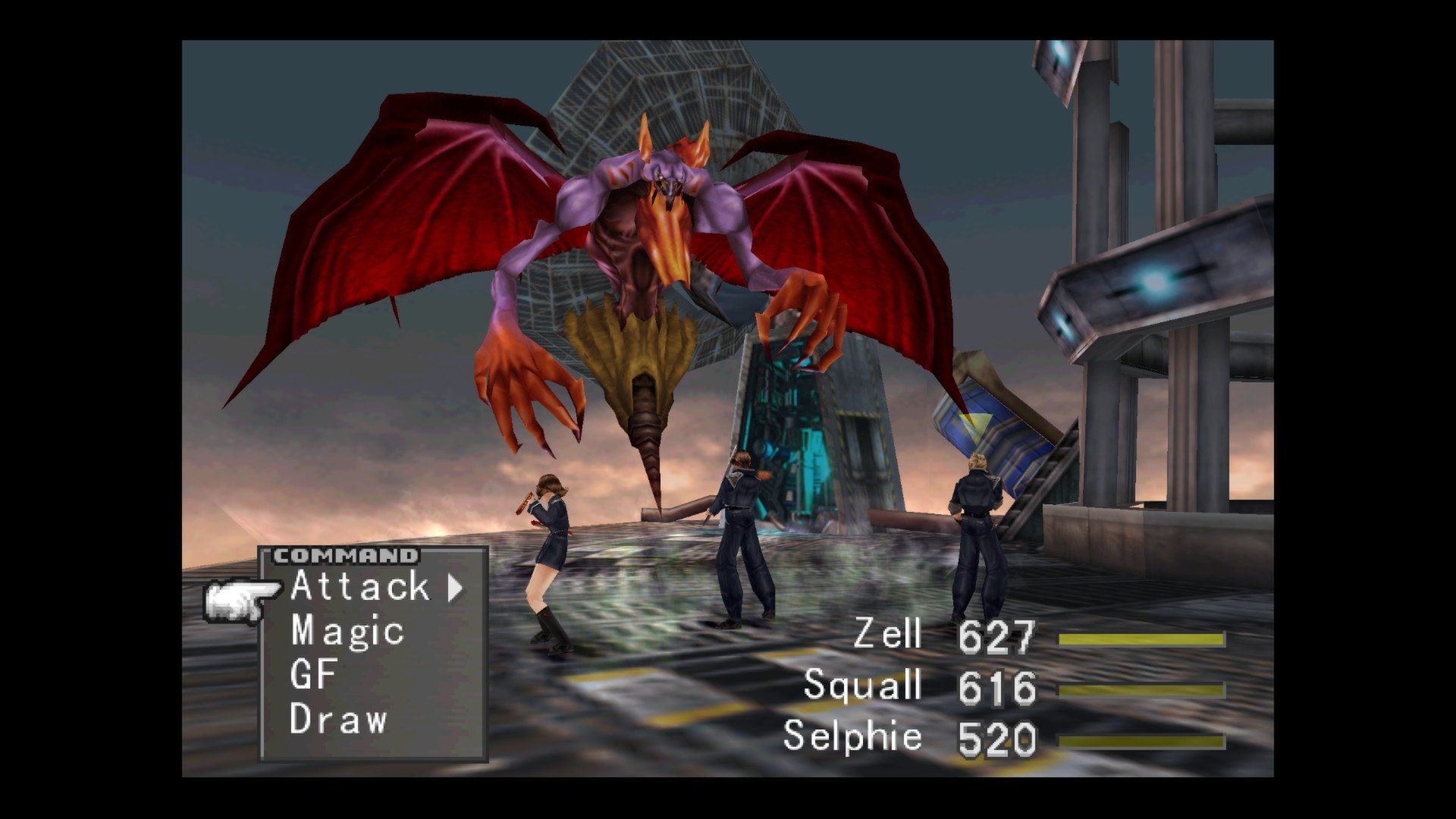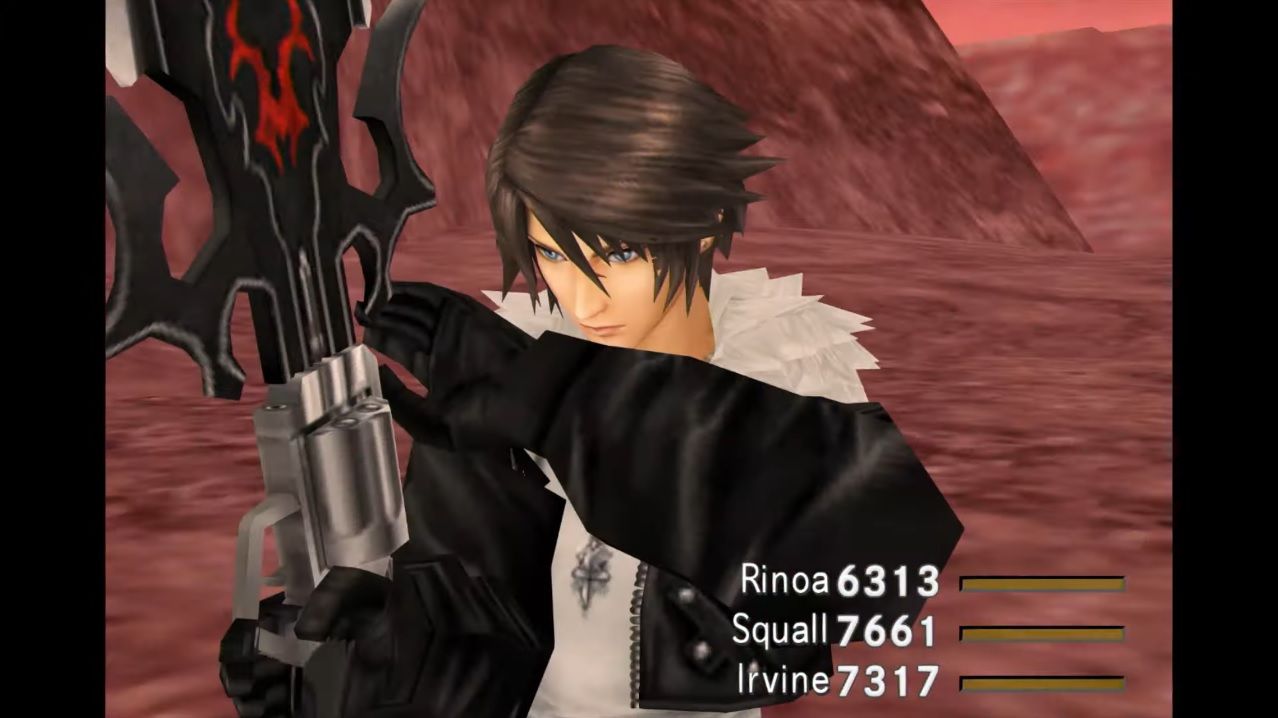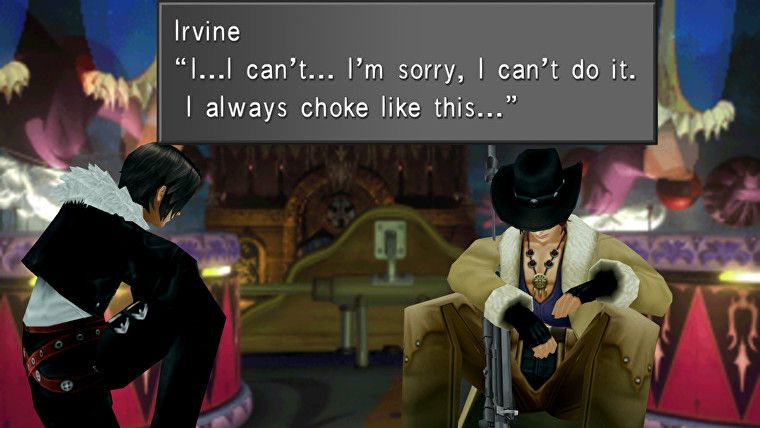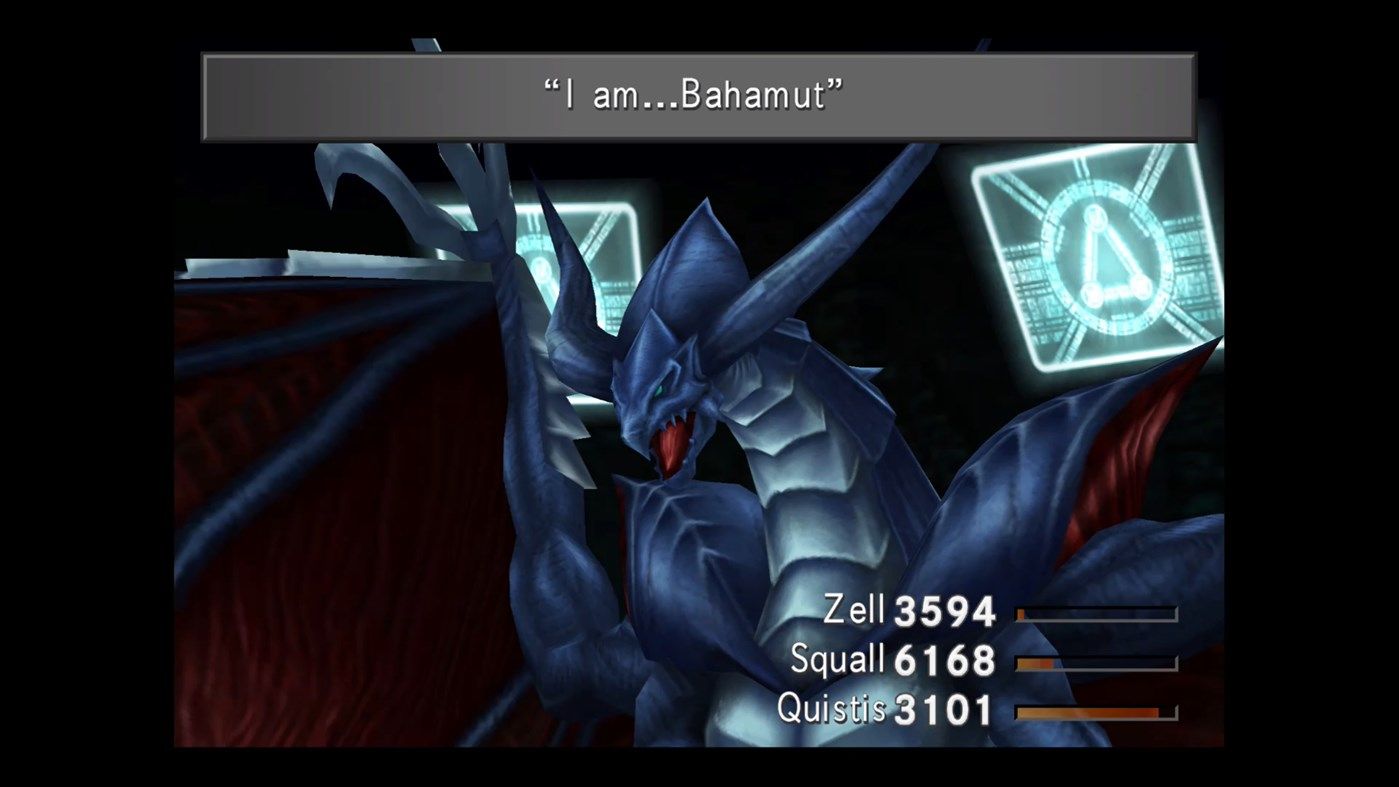We are now on the third proper port of Final Fantasy VIII, I believe, and this is the best version yet, by far.
Final Fantasy VIII was first released in 1999 for the original Playstation system. The plot centers around Squall Leonhart, a young mercenary whose first assignment heralds a chance meeting with Rinoa Heartilly and pulls him into a global conflict involving the powerful Sorceress Ultimecia.
At the time, it introduced new features to the franchise including the Junctioning system, magic stocks instead of MP for spellcasting, and customizable summons and weapons. It was also the first in the series to use pre-rendered backgrounds mixed with 3D models and featured realistically proportioned characters. In other words, this was a Final Fantasy game of many firsts. It was also my first ever Final Fantasy title.
Fast forward to now, I'm finally able to relive my wonderful childhood memories all over again with Final Fantasy VIII Remastered. And honestly? The game holds up extremely well.
[pullquote]"[Final Fantasy VIII] holds up extremely well."[/pullquote]
Final Fantasy VIII Remastered is a miracle of sorts, as it was believed that the source code for the original version was gone. However, not only did Square Enix surprise us with that announcement during their E3 2019 presentation, but then delivered an even bigger surprise: that the game would be getting a visual facelift.
The newly smoothed out character models are by far the biggest draw to this re-release, as being able to clearly see not only your party members but every other character in the game is oddly satisfying. Especially since now Squall's looks aren't left to the imagination anymore:
It's rather funny because I often forget how much better looking the characters are until I get a pleasant eyeful during one of the admittedly very cool angled shots that often come during victory poses. It's not just the protagonists either -- every NPC, GF (Guardian Forces, the summons of this entry), monster, and boss has been given the graphical overhaul. Seeing NPC faces clearly and actually recognizing them truly conveys how strong and distinctive their personalities are, and how much that stood out back in the PS1 days, despite their faces being a hot mess of pixels. Are there any other Xu stans out there?
Other visual touches include redone weapon models, improved anti-aliasing, FMVs at 1080p, updated spell and command effects, updated and rescaled backgrounds, and updated text fonts. As a bonus quality of life change, load times have been significantly improved as area and scene transition load times are virtually instantaneous.
You know what I'm thankful hasn't been changed? The music, which is still the same PS1 quality. Final Fantasy VIII has a fantastic soundtrack that needs no enhancements, especially since said enhancements tend to detract from the charm and composition of the original (looking at you X and X-2 Remaster).
Gameplay-wise Square Enix left Final Fantasy VIII Remastered virtually untouched, other than changing the button layouts to match controllers that aren't PlayStation's DualShock model. This decision has its positives and drawbacks of course; the positives being that for those playing Final Fantasy VIII for the umpteenth time, it will feel comfortingly familiar, which works just fine as the controls are mostly intuitive and uncomplicated.
The main drawback to this method, however, is the few but glaring hangups that stem from early eight-way movement mechanics. For instance, getting hung up on cliff edges is a frequent occurrence, most noticeably when making sharp turns. A great example of this happens in the Dollet Mission where these edges are commonplace and can really mess you up during the infamous chase scene.
There's also this general imprecise aspect to the movement that has a noticeable effect on interacting with objects and other people. So you'll try to angle your protagonist in front of someone or something and they'll clip through them or not face them at the exact angle you need to initiate the interaction.
Battles themselves play out with very little hiccups, as the ATB system holds up incredibly well even now. And despite polarizing opinions on the Junctioning system in general (and the chore of 100 stocking magic from enemies early on), there's no denying the strategic depth and level of customization this system affords to each party member. This seamlessly carries over into battle as there are a wealth of strategies to tackle boss battles and even random encounters.
As noted, Final Fantasy VIII was a game, at its core, that wasn't afraid to experiment. This naturally manifests as bizarre, amazing, and sometimes clunky mini-games and sidequests. And this blessed Remastered version has chosen to preserve these oddities exactly how they are.
The best-known example is the Triple Triad card game, which not only boosts a deceptively simple premise that belies a more complex rule system but is also integrated directly into gameplay through the Card Mod ability. Considering how much it cost to develop said card game, it was quite the gamble in something Square never really attempted before. But as we know, that gamble was and is a success.
Squall's first SeeD mission also counts. This mission requires his group to sneak on a moving train and uncouple the train cars while avoiding detection. Included in the mix is a game of "hot and cold" involving motion and heat sensors and entering several security codes in quick succession. The controls are smooth and responsive and the mission itself is exciting, tense, and captures exactly what it would be like for mercenaries to carry out complex mission objectives.
Then there are the lesser remembered experimental sections such as when deuteragonist Laguna Loire had to fight off a real Ruby Dragon that invaded the set of a movie he starred in with only a prop Gunblade (it makes sense in context). You'd think this would pull you right into a boss fight, but nope! The game instead throws you into a mock action battle in which you alternate between guarding attacks and then attacking yourself, until you deplete the dragon's HP bar. And then you fight the dragon in a proper boss fight.
A similar section also involves Squall fighting off a Galbadian soldier while the two are suspended on a rope high above the ground. Essentially, the two are locked in a punching match to lower each other's HP gauge to zero, at which point the loser falls to their death.
In both cases, the same control scheme is used and in both cases, they feel extremely clunky and awkward. It takes the tenseness right out of the scene as you'll most likely have to keep repeating it until you arbitrarily succeed.
[pullquote]"Final Fantasy VIII Remastered is a love letter to fans of the original title. "[/pullquote]
But I know what you all are really wondering: how do the newly added customization options enhance gameplay?
Generally speaking, the amount of convenience they provide cannot be understated. And this is true of every version, which all share the triple speed, no random encounters, and battle enhancements (max HP and ATB gauge, limit breaks always available) options. These enhancements can be easily toggled on and off through the analog sticks so players can activate and deactivate at their leisure.
PC players, meanwhile, will have even more options to completely break the game. Because that version comes with the following:
- Acquire all Items, Abilities, Special Moves and Triple Triad cards
- Max GF level, Gil, and Magic
- Highly customizable system settings
Considering all the additional content and improvements it's rather strange that, unlike the PC release in 2013, Final Fantasy VIII Remastered does not include the Chocobo World minigame. However, to compensate the exclusive items can now be obtained through Rinoa's Angelo Search.
Final Fantasy VIII Remastered is a love letter to fans of the original title. With completely revamped graphics, vastly improved load times, and a host of new customization options, this is the version to pick up.

